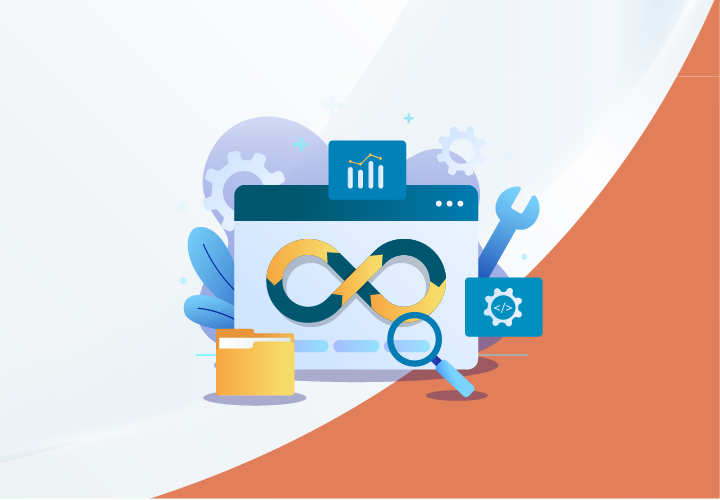About this course
DevOps & Cloud Automation Internship Program: 6-Week Structured Learning and Experience
Introduction
DevOps is a transformative approach to software development that combines development (Dev) and operations (Ops) to shorten the system development lifecycle and deliver high-quality software continuously. This internship program offers in-depth knowledge and practical skills in DevOps tools and cloud automation practices, equipping participants to manage source control, automate CI/CD pipelines, containerize applications, and deploy scalable systems using Kubernetes and Infrastructure as Code (IaC) tools like Terraform and Ansible.
Designed for aspiring DevOps engineers, system administrators, and developers, this program bridges the gap between software development and IT operations. It concludes with a capstone project, where participants build a fully automated deployment pipeline integrating all learned tools and techniques.
Program Highlights
Week 1: DevOps Foundations and Version Control
· DevOps Principles: Understand DevOps culture, key practices, and how it enhances collaboration and efficiency in the software lifecycle.
· Git Version Control: Set up repositories, manage branches, perform merges, and explore collaborative workflows on GitHub.
Week 2: Continuous Integration & Containerization
· CI/CD Concepts: Learn the stages of Continuous Integration and Continuous Deployment, and their roles in DevOps.
· GitHub Actions Pipeline: Build a CI/CD pipeline to automate build and test processes on code changes.
· Docker Basics: Containerize a sample Python or Node.js application using Docker, and manage images locally.
Week 3: Advanced Containerization & Registry Management
· Docker Compose: Run multi-container applications with Docker Compose (e.g., app + database setup).
· Container Registry: Push Docker images to Docker Hub or GitHub Container Registry and manage repositories.
Week 4: Kubernetes and Automated Deployments
· Kubernetes Introduction: Explore key Kubernetes components—pods, services, deployments—and their role in orchestration.
· Deploy with Minikube: Set up a local Kubernetes cluster using Minikube and deploy a containerized app.
· Jenkins Setup: Install and configure Jenkins to automate build tasks with freestyle jobs.
Week 5: Jenkins Pipelines & Infrastructure as Code
· CI/CD with Jenkins: Create scripted or declarative pipelines using Jenkinsfile for building/testing applications.
· Infrastructure as Code (IaC): Understand the significance of IaC in cloud environments with examples of Terraform and Ansible.
· Provision with Terraform: Automate the creation of cloud resources (e.g., AWS EC2 or Azure VM) with Terraform scripts.
Week 6: Configuration Management & Final Project
· Ansible Playbook: Write and execute Ansible scripts to configure web servers (Apache/Nginx) on target machines.
· Final Project: Build a complete CI/CD pipeline that pulls code, builds Docker images, and deploys to Kubernetes automatically.
Expected Outcomes
By the end of this internship, participants will:
· Grasp core DevOps concepts, version control, CI/CD workflows, and cloud automation practices.
· Gain hands-on experience with Git, GitHub Actions, Docker, and Docker Compose.
· Build, manage, and deploy containerized applications using Kubernetes and Minikube.
· Set up Jenkins for both freestyle and scripted pipelines to automate build and test tasks.
· Understand and apply Infrastructure as Code using Terraform and Ansible.
· Complete a fully automated deployment project demonstrating real-world DevOps practices.
Comments (0)
To understand the basics of DevOps, its significance in modern software development, and the role of cloud automation.
To understand and use Git for version control and collaborate using GitHub repositories.
To automate code building, testing, and deployment using Jenkins.
To learn containerization by creating and running Docker containers.
To manage multi-container applications using Docker Compose.
To automate workflows using GitHub Actions for CI/CD.
To create simple shell scripts to automate routine tasks in a DevOps workflow.
To understand Infrastructure as Code principles and create a basic Terraform configuration to provision cloud resources.
To implement basic monitoring and logging using Prometheus for metrics collection and Grafana for visualization.
To understand configuration management and use Ansible for automating software provisioning.
To explore basic cloud services and their roles in DevOps.
To understand container orchestration using Kubernetes and deploy a basic app.
To understand the basics of DevSecOps and security measures in CI/CD pipelines.









